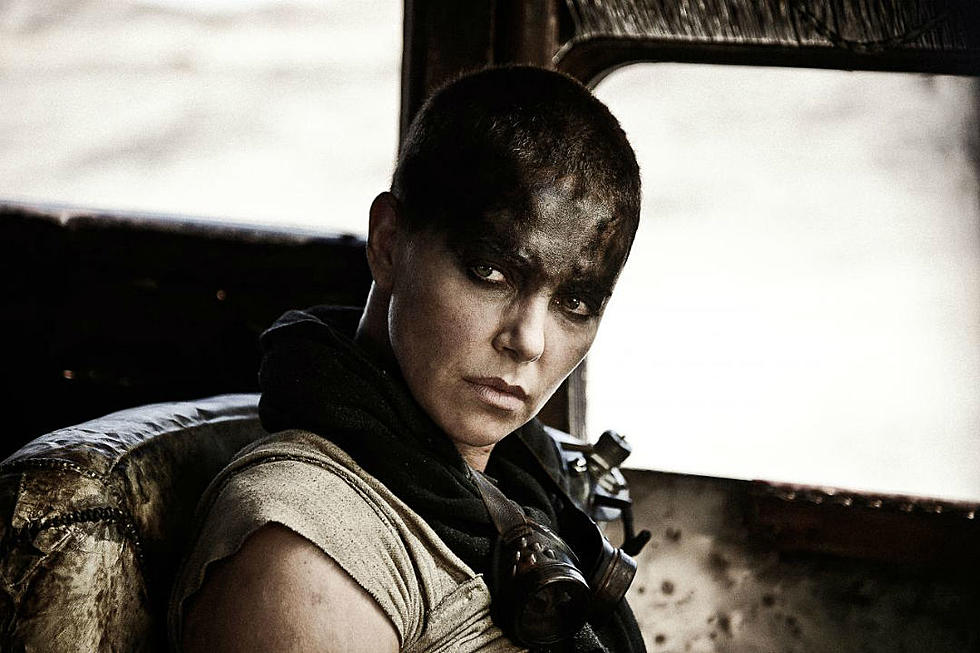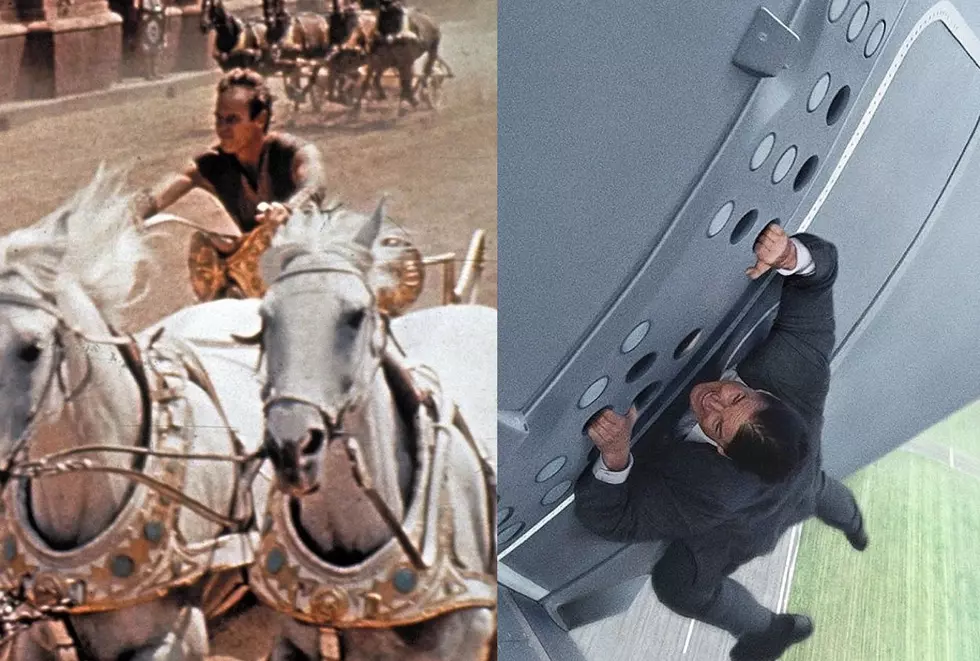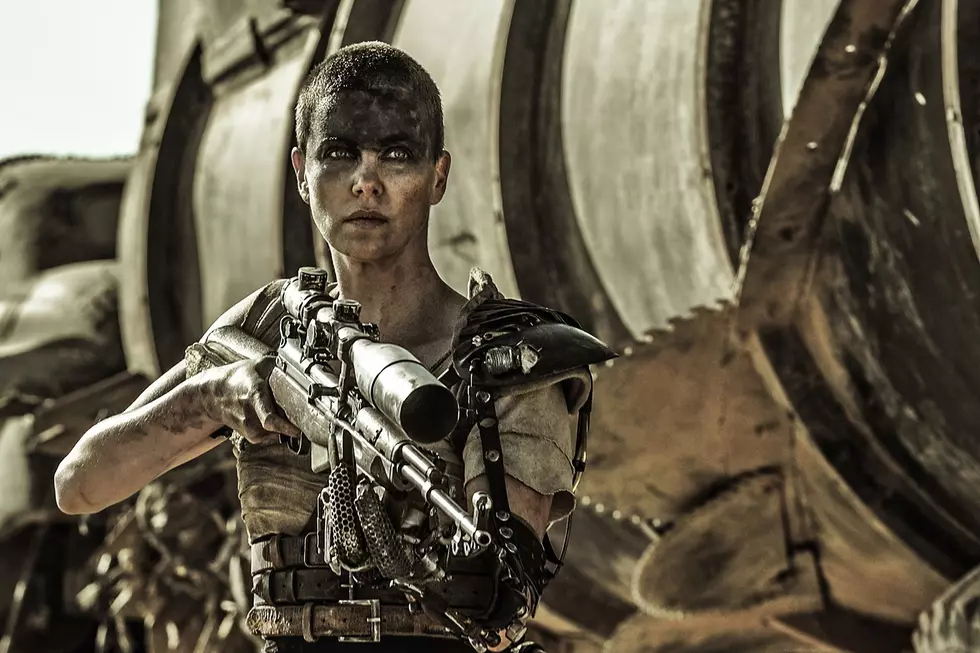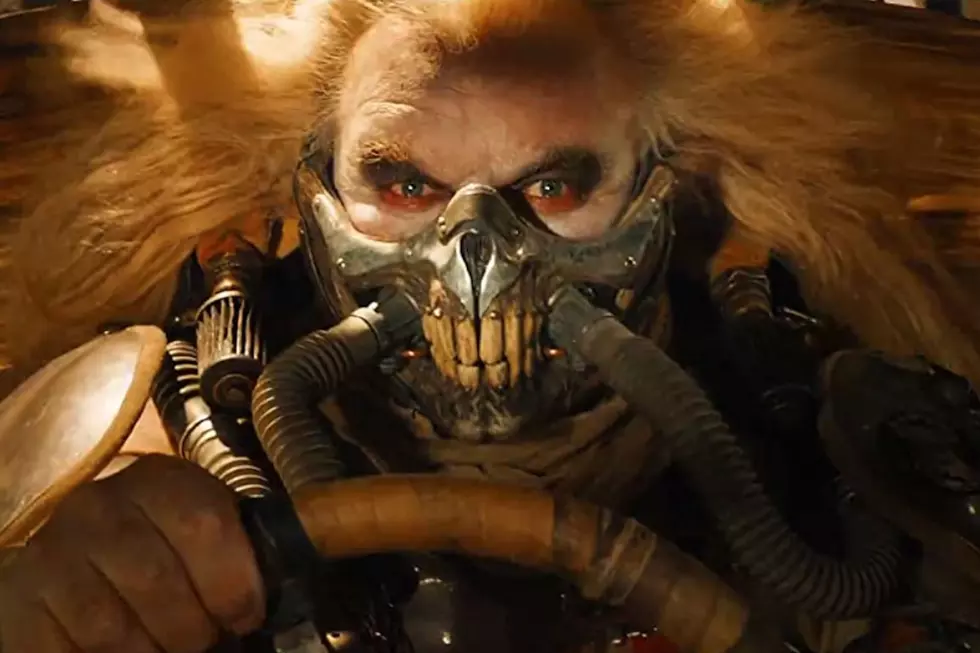
The ‘Bitter Pill’ of Feminism in ‘Mad Max: Fury Road’ and ‘Ex Machina’
This post contains spoilers for Ex Machina and Mad Max: Fury Road.
The best science fiction stories are smugglers. Underneath the high concept that drives the action lurks an ulterior motive, a message that is being quietly transported into your mind. Genre filmmakers have long used the impossible to comment on the mundane, jumping into the distant future to comment on the here and now. Politics and science fiction go hand-in-hand – H.G. Wells’ War of the Worlds slyly revealed the harsh terrors of colonialism and Robert Wise’s The Day the Earth Stood Still pointed an angry finger at mankind’s war-like nature. Both of those stories were indebted to the times in which they were made, drawing on the ugliness of the world around them to bring weight to the fantastical. It’s easy to settle in for what you think is a movie about aliens, only to find yourself watching something else entirely. Truly great sci-fi gives you what you need, not what you want, even when it tastes bitter in your mouth.
It would be easy to say that the feminist messages of Ex Machina and Mad Max: Fury Road feel more relevant than ever in the age of Gamergate and social media harassment, but that would be to miss the forest for the trees. The simple fact is that the world has treated women like second class citizens for the majority of human history. These films, which set out to strike a deadly, scathing blow to the patriarchy under the guise of science fiction and action, would be relevant in any century. The big difference is that we live in a time where you have to work overtime to ignore the suffering of women. Men are no longer allowed to turn a blind eye when Twitter and Facebook have made the world so much smaller. Ex Machina and Mad Max: Fury Road are brilliant feminist acts because they amplify the pain of women into cinematic tour de forces. Come for the car chases and robots, stay for the understanding of how popular culture and the world have so often failed 51% of the planet’s population.
Of the two films, Ex Machina is the more devious and the more likely to truly get under the skin of the men’s rights activists (because that’s a thing) who actually watch and absorb it. Mad Max: Fury Road is loud and proud about its feminism, but Alex Garland’s tiny, three-person thriller crawls into your brain and lurks there, forcing you to consider how you view and treat the women in your life. It’s rare for a film to connect with your prejudices, the lingering traces of sexism that you’ve so desperately tried to bury and burn, and then throw them back in your face.
Ex Machina has an indelible, classic sci-fi set-up. Caleb (Domhnall Gleeson), a young, awkward programmer, is invited by Nathan (Oscar Isaac), his enigmatic multibillionaire employer, to visit his home for a special task: interviewing Ava (Alicia Vikander), an artificial intelligence housed inside an artificial body ... which just so happens to look like a gorgeous woman. Over seven increasingly tense conversations, Caleb finds himself falling in love (or in something) with Ava and plots to rescue her from Nathan, who is not as genial as he seems.
The ending of Ex Machina is a bitter pill. We learn that Ava is only the latest in a line of robots that Nathan has created and abused, both psychologically and sexually. He says they’re only machines, an argument that seems particularly callous when he’s created intelligence that replicates the thoughts and feelings of an actual human being. Caleb springs Ava from confinement and she kills her abuser ... before locking Caleb away behind a sealed door, leaving him to die while she escapes into the world.
It’s a harsh ending. Caleb is going to be a relatable figure for a number of men in the audience. Shy and geeky, he’s the prototypical nerd. A gentle guy. A niceguy. But he’s one fedora away from being a total creep. Because we see the movie from his perspective, we miss that his falling in love with Ava — his instant, desperate affection and desire to spring her from captivity — is almost as shallow and dangerous as Nathan’s more overt misogyny. To Caleb, Ava is still an object; a symbol of sex that needs to be saved, not a sentient being who deserves to make her own choices. Nathan created women so he could own them and control them. Caleb is just seeking permission to do the exact same thing.
As you can tell from my byline, I’m a man. This aspect of my existence – the aspect of my existence – can’t help but define me. Try as I might, empathize as I might, I still can’t comprehend what my female friends and colleagues have to endure on a daily basis. I know for a fact that I’ve made sexist assumptions. I know for a fact that I’ve made the women in my life uncomfortable on occasion. It’s never been malicious, but it all comes down to a lack of perspective. I do not know what life is like for a woman. I will never know. But I can try. I can try to see the world from their perspective, even when so many other members of my gender treat them like objects, like robots. I have to be a feminist. I have to try. Ex Machina showed me that I need to try harder.
I was (am?) that “nice guy.” The guy who was always so polite and generous because I knew that if I just waited long enough, a woman would take notice. After all, didn’t I deserve love? Didn’t a nice guy like me deserve the affection of the opposite sex? It’s only with the perspective of life that I realize just how poisonous this line of thinking was. I didn’t deserve anything. If it takes a robot movie to make men truly, deeply consider how they think about women, then cinema has earned another century of us having faith in it as an art form.
Ex Machina is a great movie, a slick thriller directed with beauty and precision by Alex Garland, but it’s not great because Ava is an impressive special effect or because the plot takes so many unexpected twists and turns. It’s great because it forces every man in the audience to reevaluate the story from Ava’s perspective after the credits roll. The film tasks its viewers trying to understand what it’s like to be surrounded by men who want to own you, whether they want to do so with a scowl or a smile. At the risk of being crude, no 2015 film has provided me with a swifter kick to the nuts.
Because Ex Machina is a small film in limited release, its feminist overtones have not received the same level of attention as Mad Max: Fury Road. However, both films are actually about the same thing: Men who feel that they deserve to own women and the women who rally against them. While Garland may have cloaked his message in plot, director George Miller is loud and proud about his Girl Power. The latest entry in his classic post-apocalyptic saga is less about about violent car chases than the women who endure those violent car chases so they can escape a patriarchal society that has made violent car chases necessary in the first place.
The film is essentially one long action sequence, tracking Charlize Theron’s Imperator Furiosa as she absconds with the the “wives” of the vicious warlord Immortan Joe. Tom Hardy’s Max may have his name in the title, but he’s really just around to bear witness to Furiosa’s story and lend a helping hand when necessary. This isn’t Max’s story – he’s just stumbled into someone else’s adventure.
Plenty of digital ink has been spilled about how Miller shoots action and how so much of his film is constructed around jaw-dropping practical stunts, but what’s truly impressive is how he keeps the film’s messages and themes on point before, after, and during the set pieces. Most (if not all) of this lies on the shoulders of Furiosa, one of the great action heroines of all time. Many filmmakers try to create “strong” female characters, but they tend to be women in name only, a stock collection of action tropes dressed up to look like a lady. Their strength comes from their masculine traits, which is an insult to women everywhere.
That’s not the case with Furiosa, whose femininity is the source of her power. Unlike Max, who cares about nothing, Furiosa cares too much. She is maternal and protective, driven by a desire to defend the concept of civilization, to fight for even the chance of a non-barbaric life, and to free women from the hands of a monster. The women in her charge aren’t mere MacGuffins, objects that need to be brought from one place to another. They are fleshed-out individuals who made the choice to run, fully aware of the consequences. Even when the bigger stars take the spotlight, they contribute to the plot in dozens of small ways.
It’s telling that Miller only withholds one action scene from us. In a film that is wall-to-wall with chases and gunfights and explosions, we stick with Furiosa and the rest of the crew when Max doubles back to kill the Bullet Farmer and his men. And for good reason: it is the only moment in the entire film where an act of violence isn’t purely defensive. Furiosa has blood on her hands, but she only kills when cornered; when someone stands between her and the freedom of her charges. She is the one being chased in this chase movie.
We don’t actually watch Max kill a carful of men, but we do see him return covered in their blood and we see the disturbed reactions of the women. And then he cleans himself with mother’s milk, symbolism that would be too on-the-nose in any other film. Miller knows we like action and he knows he can shoot the hell out of a car chase, but he also knows that Furiosa’s badassery is defined by her desire for the freedom to make her own choices. She will forever be at odds with the guy whose name is in the title.
It’s no accident that Max steps away rather than join Furiosa when she ascends the Citadel to craft a better, saner society. Sure, he found himself respecting the rogue Imperator and fighting by her side. Hell, he even let her fire that last shot with the high caliber rifle. But it’s impossible to imagine him living in her world. The times are changing and men like him are being left behind.
Nathan and Immortan Joe are one in the same, monsters who wield enough power to claim control of life itself. Nathan creates life so he can abuse it. Immortan Joe holds life captive so he can grow more powerful. To them, women are objects. Property. They both keep their sentient “possessions” locked away and act surprised when they rebel. They are misogynists, pure and simple.
Similarly, Caleb’s unhealthy desire for affection and Max’s casual survival instincts are both understandable, but they are equally unhealthy and dangerous. That’s an awfully harsh message, but women like Ava and Furiosa (and your mom and your sister and your co-worker and your girlfriend and your wife) know harshness in ways men cannot comprehend. The world is changing, and for men used to a patriarchal society, that change can be brutal. Evolve or get locked in the lab. Evolve or get banished to the wasteland. Science fiction is all about the future and the future has no place for men who think they have the right to control women. I know I have more evolving to do. At least the movies are here to help me evolve gracefully.
More From ScreenCrush









